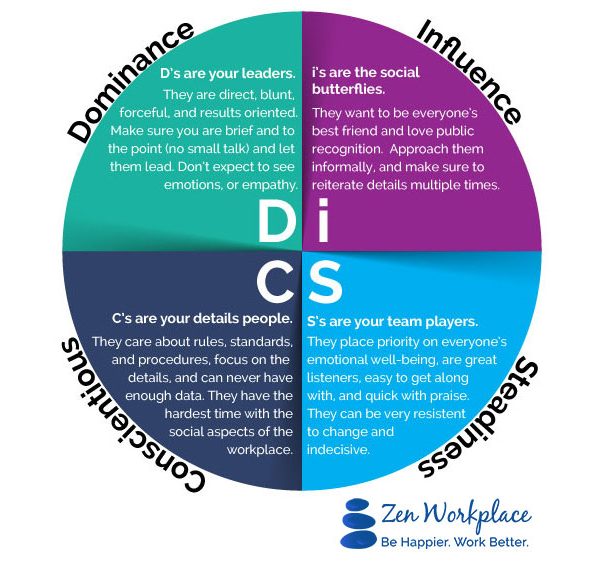Think about three or four co-workers that are the same general age as you are.
Do all of you have the same points of view? Do all of you behave the same way?
Of course not. And yet, every day we are bombarded with articles that make broad generalizations about workers based on the year they were born. There is no more targeted group for these articles than the Millennial generation.
Broad generalizations don’t help anyone
I was listening to a story on Here and Now – on NPR, the last bastion of nuance – about the need to reinvent business education and the Dean of the Boston University School of Management proceeded to make this broad generalization about an entire generation of individuals:
The Millennial generation is wired slightly differently. The Millennials tend to be individuals … and I’ll just share a story with you from one of the larger financial services firms where they are talking about the fact that many of the Millennials want to work from home, by themselves at their computer, not have to engage with other people inside the firm or outside the firm. They’re basically saying ‘leave me alone, tell me exactly what you want me to do, leave the rest to me’… the lack of interest, in many cases, of being on teams, and the power of ideas, is a major challenge for virtually any significant organization around the world.”
This is a dean of a major business school insinuating that everyone that was born between the early 1980s and the early 200os is a loner who just wants to work at home on their computer and not interact with anyone or be a team player. It simply isn’t true.
Our experience does dictate our understanding of the world. And, yes, Millennials have a different experience with the world than Generation X and Baby Boomers.
A weak way to predict behavior
However, knowing the year someone was born is an extremely weak way to predict their behavior, just like knowing a person’s gender is a weak way to predict their behavior. A much stronger indicator of our future behavior is an individual’s preferences, and the profiles that exist for measuring those attributes span generations.
Let’s take this same scenario described above and put it in the context of a tool that measures individual preferences and behavior styles – the Everything DiSC Workplace Profile. DiSC is an extremely accurate tool that is well-backed by decades of research. In other words, it’s freakishly accurate. It categorizes individual behavior in four different ways – Dominance, Influence, Steadiness and Conscientious.
Here’s a very high level overview of each type:

Everyone has a different style
It’s critical to understand that no style is better or worse than the others, and that every individual on the planet pulls from all four of these types – it’s not an all or nothing approach. However, we tend as a natural preference to gravitate to one, or at most two, of these styles. This is true regardless of the year you were born – the distribution across type is consistent across generations.
What’s more, individuals of certain styles tend to gravitate towards different types of careers. This is not a hard and fast rule, but here are a few examples:
- You’ll find a disproportionate number of D’s in leadership and management positions.
- You’ll find a disproportionate number of I’s in sales and marketing positions.
- You’ll find a disproportionate number of S’s in counseling and social work position.
- You’ll find a disproportionate number of C’s in IT and accounting positions.
It’s not that individuals with those types are the only people who can do those types of positions, or that individuals that are these types can’t do completely opposite types of work successful. These careers just cater more to their happy place.
With that in mind, let’s explore a different perspective regarding why the Millennials in the financial firm may have wanted to work from home with their computer. We know that the nature of financial careers – numbers, data, logic, reason – are very appealing to individuals with a high C type. We also know that individuals who are high C’s tend to enjoy working by themselves – they are typically introverts who are most productive when they are off on their own.
You can’t group people solely by generation
Is it possible that instead of it being a trait of all Millennials, the Dean was describing a trait of young professional that have a high C type? The type of people who may gravitate towards the type of career that you might find in a large financial firm?
Just like you’ll find young professionals who are high C’s, head over to a marketing agency and you’ll find young professionals who are high I’s on the opposite end of the spectrum, who thrive on working with people; Head over to a consulting company and you’ll find high D’s young professionals that are your natural charismatic leaders, able of rallying teams around goals. And so on, and so forth.
Grouping millions of individuals based on the 20-year-span they were born in and saying, with a straight face, that everyone in this group behaves the same way is an absurd notion. It’s also an easy way out.
Understanding why employees behave the way they do in the workplace – particularly those who are not like you – is much more complex.
Hopefully, this article has shed a very small bit of light on a different approach to make one key point – stop generalizing by generations. There are better ways to think through these issues, and better ways to approach your employees of all ages that relies on their innate preferences rather than their age.
This was originally published on Zen Workplace.
